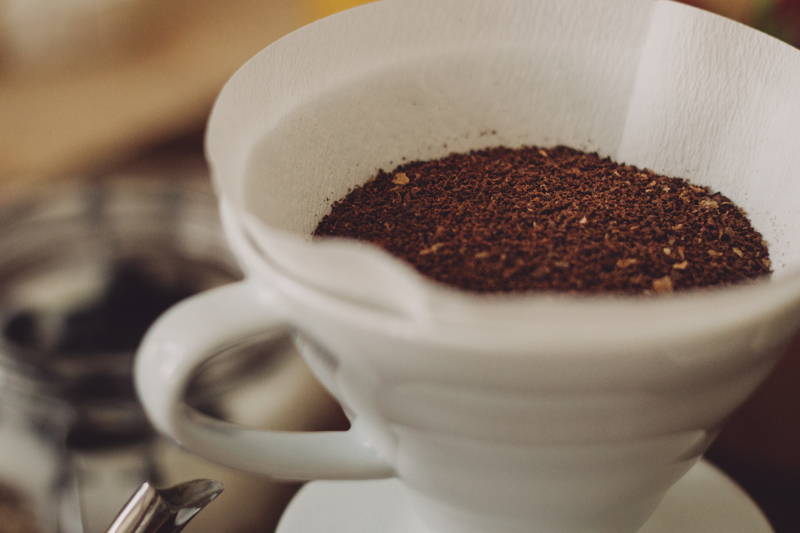
How healthy is coffee really?
Coffee is one of the most extensively researched foods nowadays. There are numerous studies on whether and how coffee affects the body’s health.
You’re probably wondering: Is coffee healthy? Several recent studies show that three to four cups of coffee per day can have positive effects on health. Moderate coffee consumption can reduce the risk of heart and cardiovascular diseases, strokes, and even liver cancer. Additionally, scientists suspect a lower risk of Parkinson’s disease, diabetes, Alzheimer’s, and depression.
If you want a more detailed answer, you’re in the right article. You will learn:
- What happens in your body when you drink coffee
- How coffee can have positive effects on your health
- Tips on how to prepare your coffee in the healthiest way possible
Disclaimer: The statements in this article are based on various studies and are for informational purposes only. The study results presented here are not a substitute for evaluation by health experts. Additionally, everyone reacts differently to caffeine. If you have questions about the effects of your own caffeine consumption, we recommend consulting your physician.
How coffee affects your body
For many Germans, a cup of coffee in the morning is as routine as accepting or declining cookies on the internet. And for good reason: After all, coffee wakes you up, enhances concentration, and can improve your mood.
But do you know what exactly happens in your body when you drink a steaming cup of coffee?
Within 30 to 45 minutes after drinking coffee, your stomach and small intestine absorb the caffeine and distribute it throughout your body via the bloodstream. Depending on your age, body weight, health condition, and genetics, the half-life is approximately 4 hours.
An ideal tool to start the day? Definitely. But that’s not all: Besides caffeine, coffee contains nearly 1,000 other substances, including many antioxidants. These substances prevent or slow down destructive processes in your cells. The same effect is also found in many fruits, vegetables, and dark chocolate.
Therefore, moderate coffee consumption can be part of a balanced and healthy diet.
But what about the rumor that coffee permanently increases your blood pressure and harms your heart and vascular system? Coffee does temporarily increase your blood pressure, but long-term studies show no significant effects on blood pressure.
However, if you already have high blood pressure, you should not overdo your coffee consumption and consult a healthcare professional just to be cautious.

Does coffee dehydrate your body?
Another rumor: Coffee is not healthy because it dehydrates your body.
Again, this is nothing more than a rumor, as the name suggests. Antje Dahl from the German Society for Nutrition (DGE) states that this belief is based on misinterpreted data from previous studies: „Regular and consistent consumption of coffee affects the body’s fluid balance solely due to the amount of water supplied with the coffee.“
The truth is, yes, caffeine has a short-term diuretic effect because it increases the filtration function of the kidneys, leading to the production of more urine for a short period. However, if you regularly drink coffee, your body quickly adapts to the caffeine intake.
Therefore, you can simply consider your cup of coffee as part of your normal daily fluid intake. But be cautious: Coffee is not a thirst quencher and should not replace water!

5 ways coffee can have positive effects on your health
Coffee can prevent cardiovascular diseases and strokes
You read that right: Moderate consumption of coffee can help prevent cardiovascular diseases and strokes.
This is supported by a study from Australia, in which half a million people between the ages of 40 and 69 participated between 2006 and 2010. The participants provided information about their health condition, habits, and coffee consumption.
The results are astonishing:
- Participants who drank two to three cups of coffee per day had the lowest risk of developing heart arrhythmias.
- Participants who drank four to five cups daily had the lowest risk of developing atrial fibrillation.
- Overall, participants who consumed at least one and up to five cups of coffee per day had the lowest risk of developing cardiovascular diseases.
Coffee can prevent skin cancer
Another study, this time a long-term study from Yale spanning over ten years.
The data was collected from nearly 450,000 people aged 50 to 71. Participants who regularly drank coffee had a 20% lower risk of developing skin cancer compared to those who did not drink coffee. The optimal protection was observed in people who consumed four cups daily.
This is likely due to the antioxidants present in coffee, which we have already discussed. These substances help reduce DNA damage in cells caused by factors like UV light.
But coffee not only prevents skin cancer, it gets even better: Coffee and its antioxidants can also slow down skin aging and improve your complexion.
Coffee boosts metabolism – Can caffeine help with weight loss?
Coffee stimulates metabolism, which is why many people have an espresso or filter coffee after a meal.
However, the belief that coffee empties the stomach faster is a misconception. It only accelerates the digestive processes that occur after eating. Nevertheless, caffeine is considered a diet „superfood“ for this reason. And rightfully so: It increases heat production in your body, resulting in more energy expenditure and fat burning.
However, coffee is not a miracle weight-loss solution. While it can complement your diet, you should not rely solely on it—coffee is not that healthy.
By the way, you should not use caffeine tablets as a dietary supplement for weight loss—nutritionists advise against it. This approach is too short-term, and the risks, such as excessive sweating and increased blood pressure, are too significant.
Moreover, your body quickly adapts to high caffeine consumption, and the desired effect diminishes after a short time.
Let’s be honest: The weight loss process is too complex to be reduced to a few food items alone. Many other factors play a role: Sufficient exercise, a balanced lifestyle, and healthy eating.

Coffee Can Reduce the Risk of Dementia
It is possible that coffee can lower the probability of developing dementia and enhance long-term memory.
Once again, caffeine is likely responsible for these effects. Studies conducted on mice with typical protein deposits associated with Alzheimer’s disease have shown that mice treated with coffee performed significantly better in memory tests compared to untreated mice.
However, the exact reason behind this is still being researched.
Coffee Protects Your Teeth
I know what you’re thinking:
„What? Coffee is good for teeth? I thought it stains them!“
You’re partially correct – coffee does cause staining, but that’s only half the truth. The other half is that coffee can protect your teeth from tooth decay.
This time, it’s not caffeine that’s responsible, but three other substances: chlorogenic acid, nicotinic acid, and trigonelline. These compounds kill the bacteria that form on your teeth.
How to Prepare Your Coffee in the Healthiest Way Possible
According to several studies, filtered coffee is the healthiest option. This is primarily because harmful substances produced during roasting do not make it into the cup. These substances are known to raise cholesterol levels.
But don’t worry: This doesn’t mean that coffee from an espresso machine is unhealthy. Filtered coffee is just slightly healthier, allowing the benefits of the beverage to shine.
The preparation method also matters. For example, with an espresso lungo, the bitter compounds present in the coffee grounds flow into the cup. You can counteract this by preparing an Americano: simply pour a single or double shot of espresso into your cup and top it up with hot water – and that’s it.
Coffee with milk or cream is harder to digest and naturally more calorie-dense.

Conclusion - Is Coffee Healthy?
When buying coffee, it’s important to consider the quality of the beans and opt for a gentle roasting process. And, of course, remember that whether coffee is truly healthy also depends on the amount you consume – following the motto „in moderation, not in excess„! You should not replace water with coffee because excessive caffeine intake can lead to potassium deficiency, muscle problems, fatigue, and headaches.


